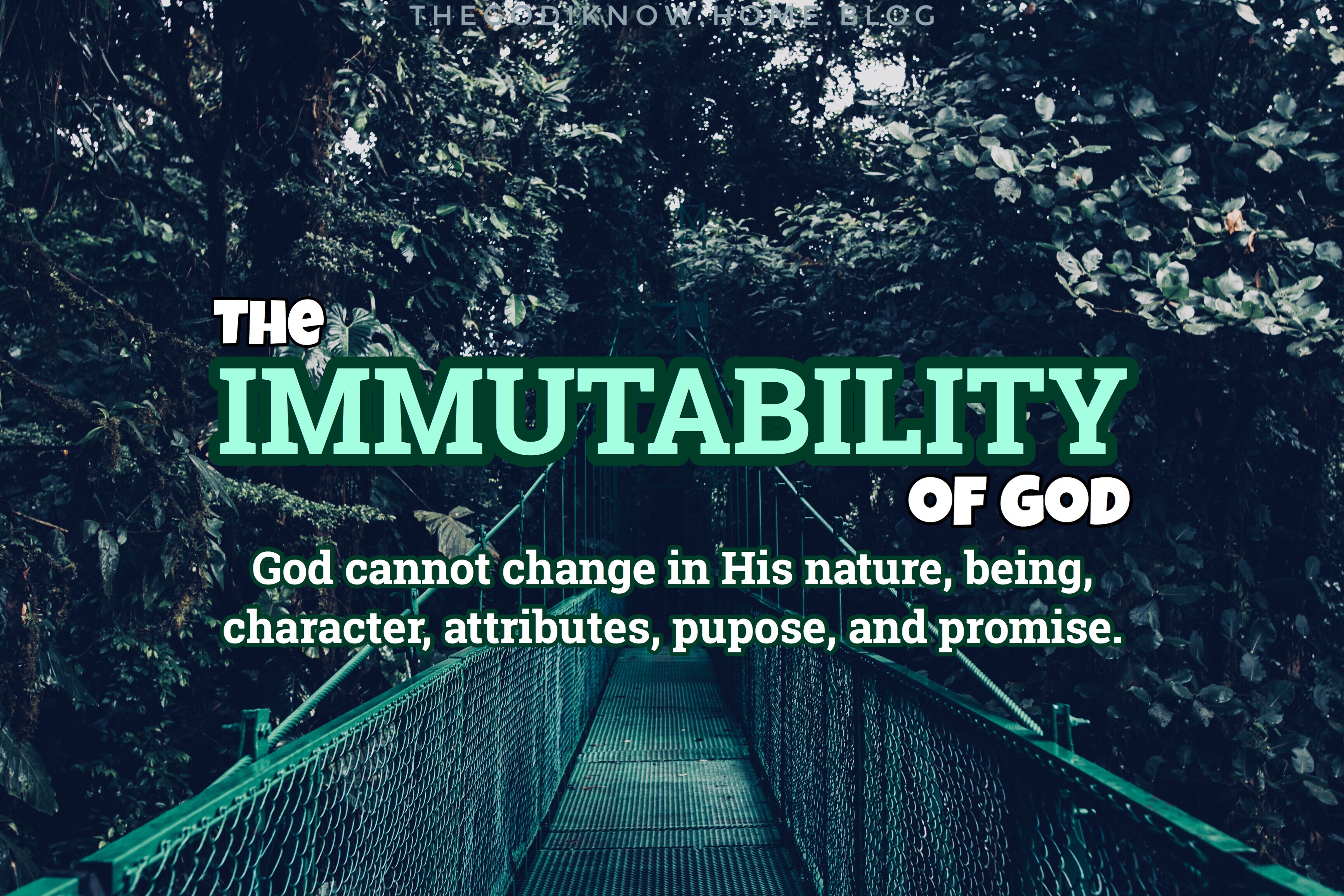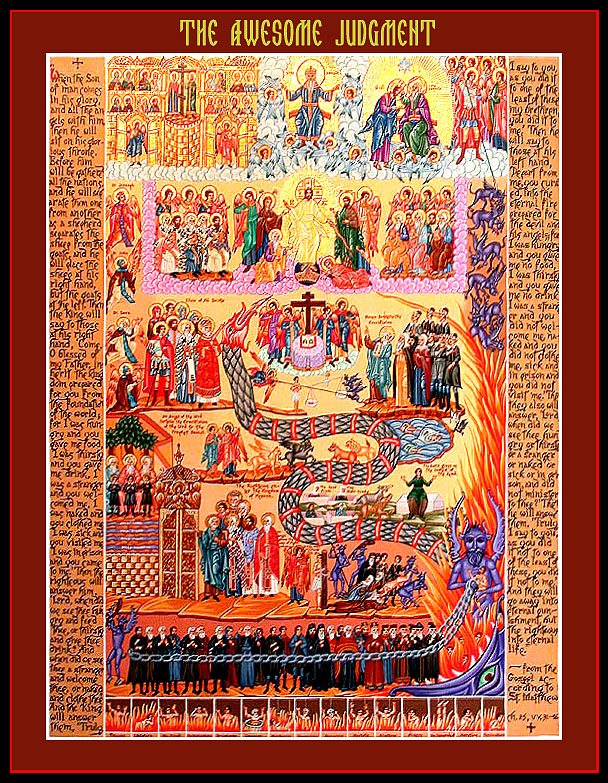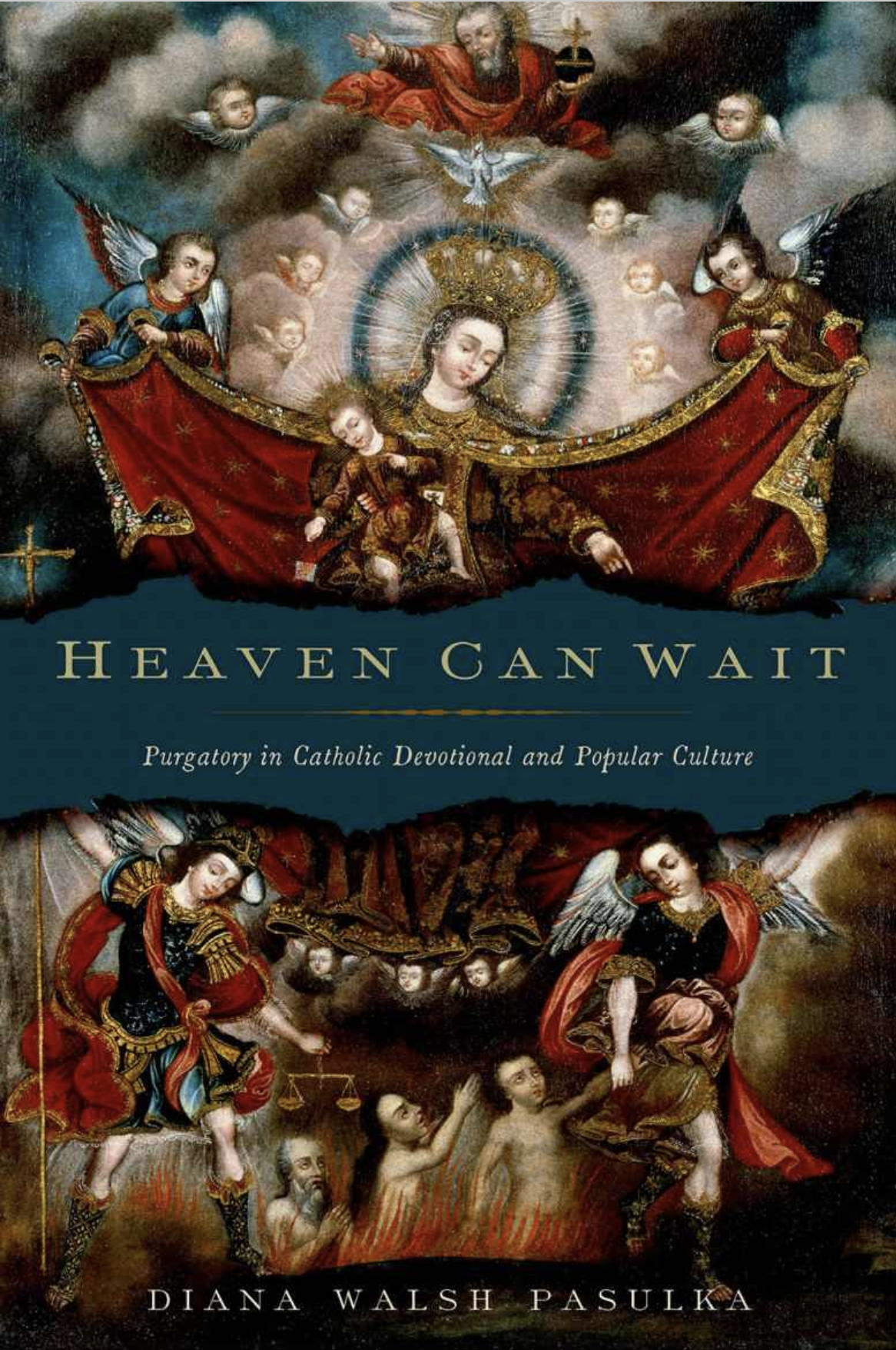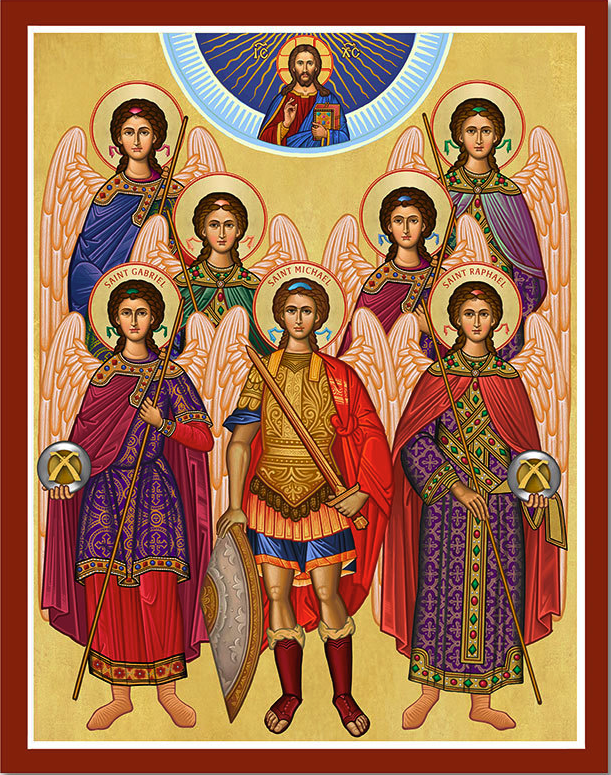

-by Dave Armstrong
“Orthodox, historic Catholic theology holds that God is…immutable. Descriptions such as “jealousy” applied to God are usually held by orthodox theologians to be anthropomorphic (intended to make God more comprehensible to limited human beings, rather than being literally true). Here are some typical statements in this regard, by St. Augustine and St. Thomas Aquinas:
“God’s anger implies no perturbation of the divine mind. It is simply the divine judgment passing sentence on sin. And when God “thinks and then has second thoughts” this merely means that changeable realities come into relation with his immutable reason. For God cannot “repent” as human beings repent, of what he has done, since in regard to everything His judgment is fixed as His foreknowledge is clear … But it is only by the use of such human expressions that Scripture can make its many kinds of readers whom it wants to help to feel, as it were, at home. Only thus can Scripture frighten the proud and arouse the slothful, provoke inquiries and provide food for the convinced. This is possible only when Scripture gets right down to the level of the lowliest readers.” -(St. Augustine, City of God, 15:25)
“It is written, I AM the Lord, and change not. (Mal. 3,6) I answer that, From what precedes, it is shown that God is altogether immutable. First, there is some being, whom we call God, and that this first being must be pure act, without any admixture of potency, for the reason that, absolutely, potency is posterior to act (Q.III, A. 3). Now everything which is in any way changed is in some way in potency. Hence it is impossible for God to be in any way changeable.“-(Summa Theologica, First Part, Q.9, art.1)
“God is said in turn to repent; not in the sense that his eternal disposition has changed, but some effect of his is changed. Hence Gregory says: “God does not change his plan, though at times he may change his judgment”, not, I say, the judgment which expresses his eternal disposition, but the judgment which expresses the order of inferior causes, in accord which Ezechias was to have died, or certain people were to have been punished for their sins. Now such a change of judgment is called God’s repentance, using a metaphorical way of speaking, in the sense that God is disposed like one who repents, for whom it is proper to change what he had been doing. In the same way, he is also said, metaphorically, to become angry, in the same sense that, by punishing, He produces the same effect of an angry person.”-(Summa Contra Gentiles, Bk. 3, Pt. 2, q.96:15)
Let’s examine now Catholic dogma regarding these matters. First, I consult Dr. Ludwig Ott’s Fundamentals of Catholic Dogma (edited in English by James Canon Bastible; translated by Patrick Lynch, Rockford, Illinois: TAN Books and Publishers, 1974, from the fourth edition of May 1960; first published in German in 1952):
“God is absolutely immutable. (De fide.)
The 4th Lateran Council and the Vatican Council teach that God is immutable (incommutabilis) D 428, 1782. Holy Scripture excludes all change from God and positively ascribes to Him absolute immutability . . .
The Fathers exclude all change from God . . .
St. Thomas bases the absolute immutability of God on His pure actuality, on His absolute simplicity and on His infinite perfection . . .
(pp. 35-36)”
Now I shall cite Henry Denzinger: The Sources of Catholic Dogma (I have the 13th edition of 1954; translated by Roy J. Deferrari; Fitzwilliam, New Hampshire: Loreto Publications). All bolding is my own.
LATERAN COUNCIL IV 1215
Ecumenical XII (against the Albigensians, Joachim, Waldensians etc.
The Trinity, Sacraments, Canonical Mission, etc.*
Chap. 1. The Catholic Faith
(Definition directed against the Albigensians and other heretics]
428 Firmly we believe and we confess simply that the true God is one alone, eternal, immense, and unchangeable, incomprehensible, omnipotent and ineffable, Father and Son and Holy Spirit: indeed three Persons but one essence, substance, or nature entirely simple. The Father from no one, the Son from the Father only, and the Holy Spirit equally from both; without beginning, always, and without end; the Father generating, the Son being born, and the Holy Spirit proceeding; consubstantial and coequal and omnipotent and coeternal; one beginning of all, creator of all visible and invisible things, of the spiritual and of the corporal; who by His own omnipotent power at once from the beginning of time created each creature from nothing, spiritual, and corporal, namely, angelic and mundane, and finally the human, constituted as it were, alike of the spirit and the body. For the devil and other demons were created by God good in nature, but they themselves through themselves have become wicked. But man sinned at the suggestion of the devil. This Holy Trinity according to common essence undivided, and according to personal properties distinct, granted the doctrine of salvation to the human race, first through Moses and the holy prophets and his other servants according to the most methodical disposition of the time.
THE VATICAN COUNCIL 1869-1870
Ecumenical XX (on Faith and the Church)
SESSION III (April 24, 1870)
Dogmatic Constitution concerning the Catholic Faith *
[ . . . ]
Chap. 1. God, Creator of All Things
1782 [The one, living, and true God and His distinction from all things.] * The holy, Catholic, Apostolic, Roman Church believes and confesses that there is one, true, living God, Creator and Lord of heaven and earth, omnipotent, eternal, immense, incomprehensible, infinite in intellect and will, and in every perfection; who, although He is one, singular, altogether simple and unchangeable spiritual substance, must be proclaimed distinct in reality and essence from the world; most blessed in Himself and of Himself, and ineffably most high above all things which are or can be conceived outside Himself [can. 1-4].
That’s only the beginning; there is much more:
ST. MARTIN I 649-653 (655)
THE LATERAN COUNCIL 649
(Against the Monothelites)
The Trinity, the Incarnation, etc.*
254 Can. 1. If anyone does not confess properly and truly in accord with the holy Fathers that the Father, and the Son, and the Holy Spirit [are a] Trinity in unity, and a unity in Trinity, that is, one God in three subsistences, consubstantial and of equal glory, one and the same Godhead, nature, substance, virtue, power, kingdom, authority, will, operation of the three, uncreated, without beginning, incomprehensible, immutable, creator and protector of all things, let him be condemned [see n. 78-82, 213].
COUNCIL OF LYONS II 1274
Ecumenical XIV (concerning the union of the Greeks)
Declaration Concerning the Procession of the Holy Spirit *
[The Most Exalted Trinity and the Catholic Faith]
[ . . . ]
Profession of Faith of Michael Palaeologus *
[ . . . ]
463 He will come to judge the living and the dead, and will return to each one according to his works whether they were good or evil. We believe also that the Holy Spirit is complete and perfect and true God, proceeding from the Father and the Son, coequal and consubstantial, co-omnipotent, and coeternal through all things with the Father and the Son. We believe that this holy Trinity is not three Gods but one God, omnipotent, eternal, invisible, and unchangeable.
A Decree in Behalf of the Jacobites *
[From the Bull “Cantata Domino,” February 4, Florentine style,
1441, modern, 1442]
703 The sacrosanct Roman Church, founded by the voice of our Lord and Savior, firmly believes, professes, and preaches one true God omnipotent, unchangeable, and eternal, Father, Son, and Holy Ghost; one in essence, three in persons; . . .
* * * * *
(ST. SERGIUS I 687-701)
COUNCIL OF TOLEDO XV 685
Protestation concerning the Trinity and the Incarnation *
[From “Liber responsionis” or the “Apologia” of Julian,
Archbishop of Toledo]
294 . . . We have found that in that book of response to our faith, which we had sent to the Roman Church through Peter the regent, it had seemed to the Pope already mentioned (St Benedict II) that we had carelessly written that first chapter where we said according to divine essence: “Will begot will, as also wisdom, wisdom,” because that man in a hurried reading thought that we had used these very names according to a relative sense, or according to a comparison of the human mind; and so in his reply he commanded us to give warning saying: “In the natural order we recognize that the word takes its origin from the mind, just as reason and will, and they cannot be changed, so that it may be said that, as the word and the will proceed from the mind, so also the mind from the word or the will, and from this comparison it seemed to the Roman Pontiff that the will cannot be said to be from the will.” We, however, not according to this comparison of the human mind, nor according to a relative sense, but according to essence have said: Will from will, as also wisdom from wisdom. For this being is to God as willing: this willing as understanding. But this we cannot say concerning man. For it is one thing for man not to will that which is, and another thing to will even without understanding. In God, however, it is not so, because so perfect is His nature, that this being is to Him as willing, as understanding. . . .
The Catholic Encyclopedia reiterates the above (“The Nature and Attributes of God”):
…Immutability
In God “there is no change, nor shadow of alteration” (James 1:17); “They [i.e. “the works of thy hands”] shall perish, but thou shalt continue: and they shall all grow old as a garment. And as a vesture shalt thou change them, and they shall be changed: but thou art the selfsame and thy years shall not fail” (Hebrews 1:10-12, Psalm 101:26-28. Cf. Malachi 3:6; Hebrews 13:8). These are some of the Scriptural texts which clearly teach Divine immutability or unchangeableness, and this attribute is likewise emphasized in church teaching, as by the Council of Nicaea against the Arians, who attributed mutability to the Logos (Denzinger, 54-old No. 18), and by the Vatican Council in its famous definition.
That the Divine nature is essentially immutable, or incapable of any internal change, is an obvious corollary from Divine infinity. Changeableness implies the capacity for increase or diminution of perfection, that is, it implies finiteness and imperfection. But God is infinitely perfect and is necessarily what He is. . . .
Divine Knowledge
That God is omniscient or possesses the most perfect knowledge of all things, follows from His infinite perfection. In the first place He knows and comprehends Himself fully and adequately, and in the next place He knows all created objects and comprehends their finite and contingent mode of being. Hence He knows them individually or singularly in their finite multiplicity, knows everything possible as well as actual; knows what is bad as well as what is good. Everything, in a word, which to our finite minds signifies perfection and completeness of knowledge may be predicated of Divine omniscience, and it is further to be observed that it is on Himself alone that God depends for His knowledge. To make Him in any way dependent on creatures for knowledge of created objects would destroy His infinite perfection and supremacy. Hence it is in His eternal, unchangeable, comprehensive knowledge of Himself or of His own infinite being that God knows creatures and their acts, whether there is question of what is actual or merely possible. Indeed, Divine knowledge itself is really identical with Divine essence, as are all the attributes and acts of God; but according to our finite modes of thought we feel the need of conceiving them distinctly and of representing the Divine essence as the medium or mirror in which the Divine intellect sees all truth.
The article on “Eternity” highlights the same notions of immutability and transcendence of time:
. . . That is how and why we represent the Divine existence as a life. It is a life, moreover, not only without beginning or end but also without succession — tota simul, that is without past or future; a never-changing instant or “now”. It is not so difficult to form some faint notion of a duration which never began and shall never end. We hope that our own life shall be endless; and materialists have accustomed us to the notion of a series stretching backward without limit in time, to the notion of a material universe that never came into being but was always there. The Divine existence is that and much more; excluding all succession, past and future time-indeed all time, which is succession-and to be conceived as an ever-enduring and unchanging “now”. . . .
If, now, we apply to the time-line what we have been attempting in that of space, the infinite, unchangeable point which was immensity becomes eternity; not a real succession of separate acts or changes (which is known as “time”); nor even the continuous duration of a being which is changeless in its substance, however it may vary in its actions (which is what St. Thomas understands by an aevum ); but an endless line of existence and action which not only is not actually interrupted, but is incapable of interruption or of the least change or movement whatsoever. And as, if one instant should pass away and another succeed, the present becoming past and the future present, there is necessarily a change or movement of instants; so, if we are not to be irreverent in our concept of God, but to represent Him as best we can, we must try to conceive Him as excluding all, even the least, change or succession; and his duration, consequently, as being without even a possible past or future, but a never beginning and a never-ending, absolutely unchangeable “now.” This is how eternity is presented in Catholic philosophy and theology. The notion is of special interest in helping us to realize, however, faintly, the relations of God to created things, especially with regard to His foreknowledge. In Him there is no before or after, and therefore no foreknowledge, objectively; the distinction which we are wont to draw between His knowledge of intelligence or science or prescience and His knowledge of vision is merely our way of representing things, natural enough to us, but not by any means objective or real in Him. There is no real objective difference between His intelligence and His vision, not between either of these and the Divine substance in which there is no possibility of difference or change.
. . . it is not true to say that God either saw or foresaw anything, or that He will see it, but only that He sees it. . . . It is only in relation to the finite and mutable that there can be a before and after. And when we say, that, as faith teaches, the world was created in time and was not from eternity, our meaning should not be that the existence of the Creator stretched back infinitely before He brought the world into being; but rather that while His existence remains an unchangeable present, without possibility of before or after, of change or succession, as regards itself, the succession outside the Divine existence, to each instant of which it corresponds as the centre does to any point in the circumference, had a beginning, and might have extended indefinitely further backward, without, however, escaping the omnipresence of the eternal “now” . . .
Sources
The basis of all later treatment of the question of eternity is that of ST. THOMAS, I, Q. x. For a fuller exposition see SUAREZ, De Deo, I, iv; IDEM, Metaphysica, disp. l, ss. 4 sq.; LESSIUS, De perfectionibus divinis, IV.
….The salvation or damnation of every soul is known to God and decreed from eternity. Therefore, there is no change. It always was what it is. For God it simply “is” because He is at all times “now.” An omniscient being cannot change His “mind….”
…Protestant theologian John Frame has written a very informative article that is, I believe (unless I missed something) harmonious with Catholic teaching: “Open Theism and Divine Foreknowledge”. This can clear up many questions about “contingency” and conditional prophecies. See also the Catholic Encyclopedia article, “Prophecy”, though it doesn’t specifically address the issue of how God presents prophecies in relation to His foreknowledge and omniscience, and immutability.
For an extremely interesting (but not exclusively Christian or Catholic Christian) philosophical treatment of these sorts of issues, see “Prophecy” (Stanford Encyclopedia of Philosophy); also, “Immutability” in the same work. And “Divine Simplicity” and “Eternity”. Also, along similar lines: “God and Time” (Internet Encyclopedia of Philosophy). Also, St. Thomas Aquinas: Summa: First Part, Q. 10: The Eternity of God.
Paul Helm: J. I. Packer Professor of Theology and Philosophy at Regent College in Vancouver, British Columbia, has written a book defending the divine timelessness view: Eternal God: A Study of God Without Time (Oxford University Press, 1988). IVP (evangelical publisher) has put out a book: God & Time: Four Views. Protestant (?) writer George Pytlik defends God’s timelessness: “Can God Change His Mind?” (part one / part two). John Frame gives a very brief reply too.
Did the Incarnation affect God’s immutability, though? No:
“It is to be remembered that, when the Word took Flesh, there was no change in the Word; all the change was in the Flesh. At the moment of conception, in the womb of the Blessed Mother, through the forcefulness of God’s activity, not only was the human soul of Christ created but the Word assumed the man that was conceived. When God created the world, the world was changed, that is, it passed from the state of nonentity to the state of existence; and there was no change in the Logos or Creative Word of God the Father. Nor was there change in that Logos when it began to terminate the human nature. A new relation ensued, to be sure; but this new relation implied in the Logos no new reality, no real change; all new reality, all real change, was in the human nature. Anyone who wishes to go into this very intricate question of the manner of the Hypostatic Union of the two natures in the one Divine Personality, may with great profit read St. Thomas (III:4:2); Scotus (in III, Dist. i); (De Incarnatione, Disp. II, sec. 3); Gregory, of Valentia (in III, D. i, q. 4). Any modern text book on theology will give various opinions in regard to the way of the union of the Person assuming with the nature assumed.’ -(Catholic Encyclopedia: “The Incarnation”; cf. St. Thomas Aquinas’ related comments in the Summa)”
Love & mind blown,
Matthew


















